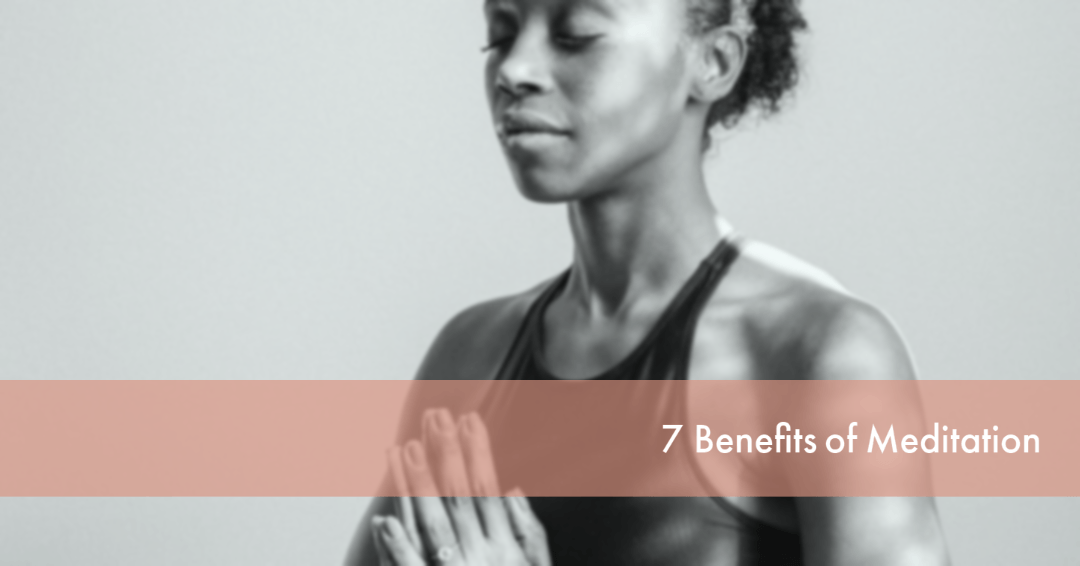1. Reduce Stress
Meditation may reduce stress with mantras and breathing exercises, forcing you to slow down mentally and physically and focus on the here and now. Studies have shown that practicing meditation can reduce stress by countering the production of cortisol.
2. Improve Sleep
Meditation can be used to improve rest. Sometimes the inability to fall asleep can be traced back to residual feelings of anxiety and stress felt throughout the day. Though you may physically feel tired when laying down, you might still notice your heart racing as you encounter difficulty drifting off. This is because, despite being tired, your anxiety has likely triggered a stress-induced “fight or flight” response, as your body releases cortisol. Using a combination of coping skills learned in spiritual counseling, you can manage how your body processes stress by refocusing your thoughts and tapping into a meditative state to fall asleep with ease.
3. Manage Blood Pressure
High blood pressure is linked to a variety of health concerns, from heart attack to stroke, and stress is often the catalyst to elevated blood pressure. Meditation has been linked to improved blood pressure, because of how it aids in relaxing the nerve signals that control heart function.
4. Enhance Focus
If you’re overwhelmed and can’t seem to focus on the task at hand, spiritual counseling can help you condition your mind in a way that effectively increases your attention span. By focusing your breathing and forcing you to anchor your attention to one simple thought, meditation can decrease your mind’s propensity to wander.
5. Strengthen Your Memory
As your brain ages, you may have a harder time remembering simple tasks or past memories, and retaining short- or long-term thoughts seems more challenging. The repetitive mantras and physical movements sometimes used during meditation can help to strengthen your cognitive abilities as you age, because of how it encourages a heightened sense of thought.
6. Replacing Unwanted Emotional Reactions
Habits are second nature. A person reacts to their circumstance in a manner that does not require any conscious thinking. An example common example is feeling guilty when a daily ritual is missed. For example, your alarm clock fails and you wake up late. What if anger, fear or anxiety is your reaction and you really don’t like it? Specific meditation techniques can help you replace an unconscious behavior (anger in this example) to conscious behavior in order for your to replace it with your preferred response (calm, positive outlook). Meditation can help you go from a reactionary life to a responsive life.
7. Support Healthy Habits
Weight loss is a challenge because of the goal to replace eating patterns with new improved eating patterns. There are many facts related to losing weight but long-term eating patterns usually win out in the end. Weight loss meditations can help, over time, to change the subconscious to only contain the new thought processes for healthier eating patterns thus helping you develop what works best for you. Exercise and other useful healthy life style behaviors can become a part of your routine quicker with a supportive meditation.
Meditation is a Gift
Meditation time is a gift I give myself every day. Meditation coupled with prayer is a great thing to have as a daily discipline. My favorite meditations are the ones that guide you to meet a Spirit guide, angels, your higher self, or an ascended master. I enjoy meditations for physical healing. Meditations that help activate the chakras are relaxing and healing too. There is a meditation out there for anything you want to change or improve in your life including topics like improving communication skills, lucid dreaming, enhance creativity and losing weight. Start a meditation practice. Make a positive difference in your life. Give yourself the gift of meditation.
Blessings from my Soul to you Soul, Always
Medium Kimberly Thomas





